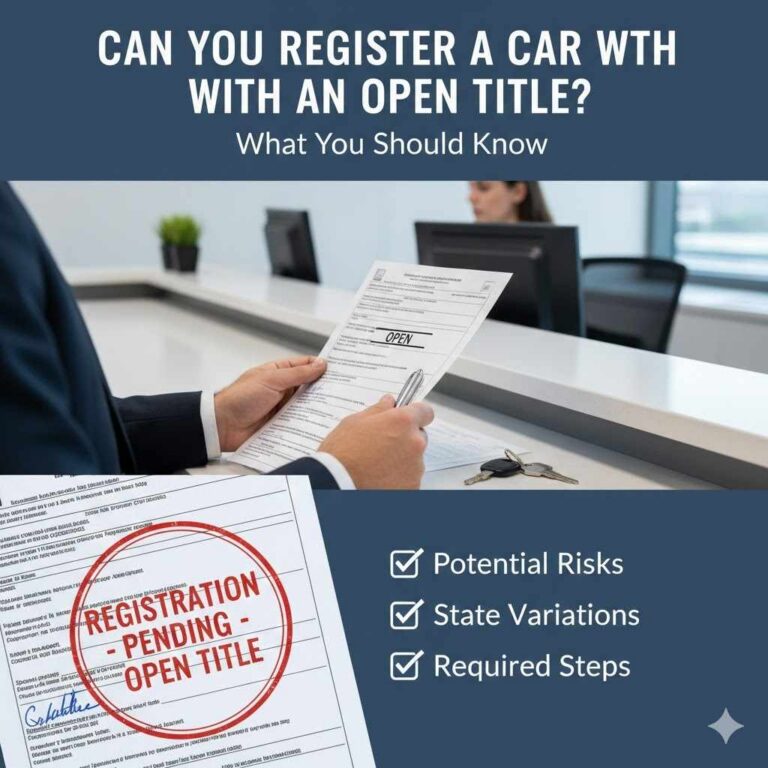How Do I Get Preapproved for a Car Loan? Quick Tips
To get preapproved for a car loan, start by checking your credit score and gathering financial documents. Then, apply online with lenders or banks that offer preapproval services.
Getting preapproved for a car loan is a smart first step in your vehicle purchase journey. It helps you understand how much you can borrow and sets a budget for your car shopping. Preapproval also shows sellers you’re a serious buyer, enhancing your negotiating power.
The process typically involves submitting personal and financial information to lenders. They assess your creditworthiness and provide a loan estimate. Securing preapproval can streamline your car-buying experience, making it smoother and less stressful. Knowing your financing options allows you to focus on finding the right vehicle for your needs.
Introduction To Preapproval
Getting preapproved for a car loan can be very helpful. It shows how much money you can borrow. Lenders look at your credit score and financial history during this process. This helps them decide if you qualify.
Preapproval is different from prequalification. Prequalification gives a rough idea of what you might get. It usually involves a soft credit check. On the other hand, preapproval is more official. It requires a hard credit check and gives a clear loan amount.
| Aspect | Preapproval | Prequalification |
|---|---|---|
| Credit Check | Hard Check | Soft Check |
| Loan Amount | Specific Amount | Estimated Amount |
| Validity | More Reliable | Less Reliable |
Credit Score Essentials
Your credit score plays a big role in your loan approval. A higher score can lead to better interest rates. Lenders look at your score to decide if you are a risky borrower. Generally, a score above 700 is considered good. Below 600 may cause problems with loan approvals.
Improving your score is possible. Pay your bills on time. Keep your credit card balances low. Avoid opening many new accounts at once. These steps can help raise your score.
| Credit Score Range | Loan Impact |
|---|---|
| 300 – 579 | High risk, likely denied |
| 580 – 669 | Fair risk, higher interest |
| 670 – 739 | Good risk, better rates |
| 740 – 799 | Very good, competitive rates |
| 800 – 850 | Excellent, best terms |
Gathering Necessary Documentation
To get preapproved for a car loan, gather necessary documents. Start with proof of income. This could include pay stubs, tax returns, or bank statements. Lenders need to see your financial stability.
Next, provide proof of residence. You can use utility bills, lease agreements, or bank statements. These documents show your current address and help verify your identity.
Lastly, bring your identification. A driver’s license or passport works well. Also, check your credit history. Lenders will review this to assess your creditworthiness.
Choosing The Right Lender
Choosing the right lender can save you money. Banks often offer competitive rates. They have many branches and online services. Credit unions usually provide lower rates and fees. They focus on serving their members. Online lenders may offer quick approval. They are great for tech-savvy borrowers.
Evaluating lender reputation is essential. Look for customer reviews and ratings. Check for any complaints or issues. Compare loan terms like interest rates and fees. A clear loan agreement is crucial. Understand the repayment schedule before signing.
Understanding Loan Terms
The Annual Percentage Rate (APR) is crucial when securing a car loan. It shows the total cost of borrowing money. A lower APR means lower overall payments. Interest rates can change based on market conditions. Always shop around for the best rates.
Loan term lengths can vary. Common terms include 36, 48, or 60 months. Shorter terms usually have higher monthly payments but lower total interest. Longer terms may seem affordable but can cost more overall.
A down payment is the money you pay upfront. It reduces the loan amount. A larger down payment can lead to better loan terms. Aim for at least 20% of the car’s price for optimal results.
Applying For Preapproval
Applying for preapproval is a smart step. Online applications are quick and easy. You fill out a form on the lender’s website. Make sure to provide accurate information. You may need to upload documents like income proof.
In-person applications allow for personal interaction. Visit your local bank or credit union. Bring necessary documents, such as your ID and pay stubs. A loan officer will guide you through the process.
During the process, expect a credit check. Lenders want to see your creditworthiness. You may receive a decision on the same day. Preapproval can help you understand your budget better.
Assessing Your Budget
Assessing your budget is a key step in getting preapproved for a car loan. Start by calculating your monthly payments. This helps you understand what you can afford.
Consider the total cost of ownership. This includes not just the loan payment. Remember to add insurance, fuel, maintenance, and taxes.
| Expense Type | Estimated Monthly Cost |
|---|---|
| Loan Payment | $300 |
| Insurance | $100 |
| Fuel | $150 |
| Maintenance | $50 |
| Taxes | $25 |
Sum all these costs to get a clear picture. This makes it easier to decide on a car loan.
Navigating Preapproval Outcomes
Getting denied for preapproval can feel discouraging. It’s important to understand why this happened. Common reasons include a low credit score, high debt-to-income ratio, or insufficient income documentation.
Once you know the reason, take steps to improve your chances. Start by checking your credit report. Fix any errors you find. Next, work on paying down debts to lower your ratio. This can help boost your credit score.
If possible, increase your income through a side job or other means. After making these changes, consider applying for preapproval again. Remember, many lenders offer different terms. Finding the right one can make a big difference.
Shopping For Your Car
Getting preapproved for a car loan helps you shop with confidence. This process shows how much you can spend. It also gives you an edge in negotiating prices. Dealers may be more willing to work with you.
Use your preapproval amount wisely. Know your budget and stick to it. This helps avoid overspending on your new vehicle. Make sure your monthly payments fit your financial plan.
Remember, staying within preapproved limits is key. This ensures you can make payments easily. Financial stress can come from buying too much car. Always prioritize what you can afford.
Finalizing The Loan
Completing the paperwork is a crucial step in getting a car loan. You must provide accurate information about your finances. This includes your income, credit score, and employment history. Lenders will check this information carefully.
Understanding the fine print is equally important. Read all terms and conditions before signing. Look for interest rates, fees, and payment schedules. Ask questions if something is unclear. Knowing these details helps avoid surprises later.
| Important Documents | Description |
|---|---|
| Proof of Income | Pay stubs or tax returns |
| Credit Report | Shows your credit history |
| Identification | Driver’s license or passport |
Maintaining Financial Health
Staying financially healthy is crucial for getting preapproved for a car loan. Making payments on time helps build a good credit score. This shows lenders you are responsible. Paying bills consistently can lead to better loan terms.
Refinancing for better rates can save money in the long run. If current rates drop, consider refinancing your loan. This may lower monthly payments and reduce total interest paid. Always check your credit score before refinancing.
By keeping track of payments and exploring refinancing options, you can improve your financial situation. This strategy makes you more attractive to lenders. A strong financial profile can lead to better car loan options.
Frequently Asked Questions
How Can I Get Preapproved For A Car Loan?
To get preapproved for a car loan, start by checking your credit score. A higher score often leads to better rates. Next, gather necessary documents like income proof and identification. Then, approach lenders—banks or credit unions—and fill out their application.
This will give you a clearer picture of your budget.
What Documents Are Needed For Car Loan Preapproval?
Typically, you’ll need proof of income, such as pay stubs or tax returns. Identification documents like a driver’s license are also necessary. Some lenders may request your Social Security number. Having these documents ready streamlines the preapproval process and makes it quicker and easier.
How Long Does Car Loan Preapproval Last?
Car loan preapproval usually lasts from 30 to 90 days. This timeframe varies by lender, so check the specifics. If you don’t find a car within that period, you may need to reapply. Staying within this window helps ensure your interest rate and terms remain favorable.
Can I Get Preapproved With Bad Credit?
Yes, you can still get preapproved with bad credit. However, be prepared for higher interest rates and less favorable terms. Some lenders specialize in loans for those with poor credit. It’s wise to shop around and compare offers before making a decision.
Conclusion
Getting preapproved for a car loan is a smart step in your buying journey. It gives you a clear budget and helps you negotiate better. Remember to gather your financial documents and check your credit score beforehand. With these tips, you’ll be well-prepared to secure the best deal on your next vehicle.







